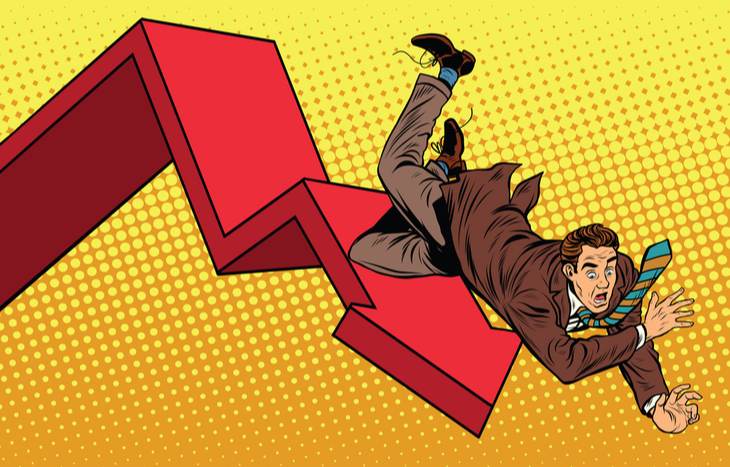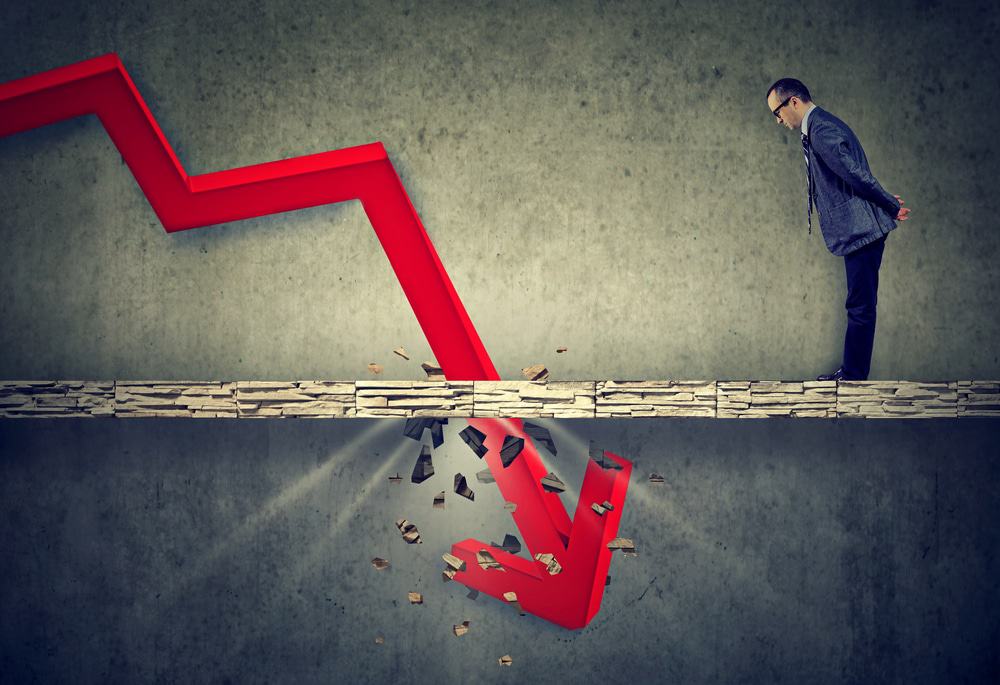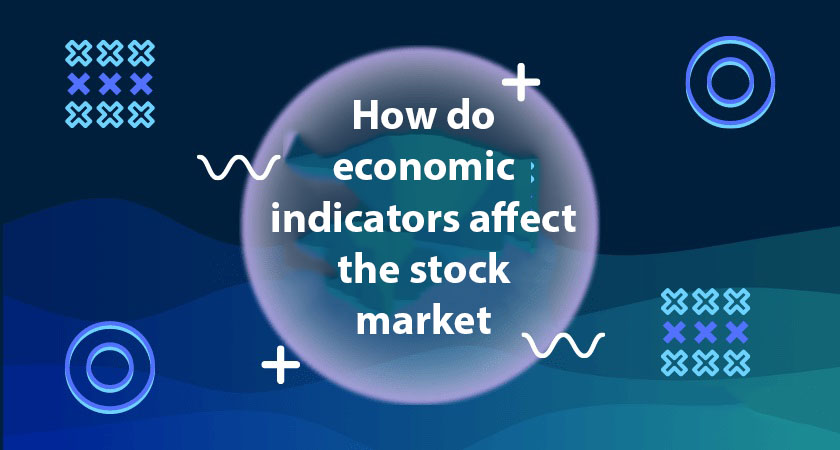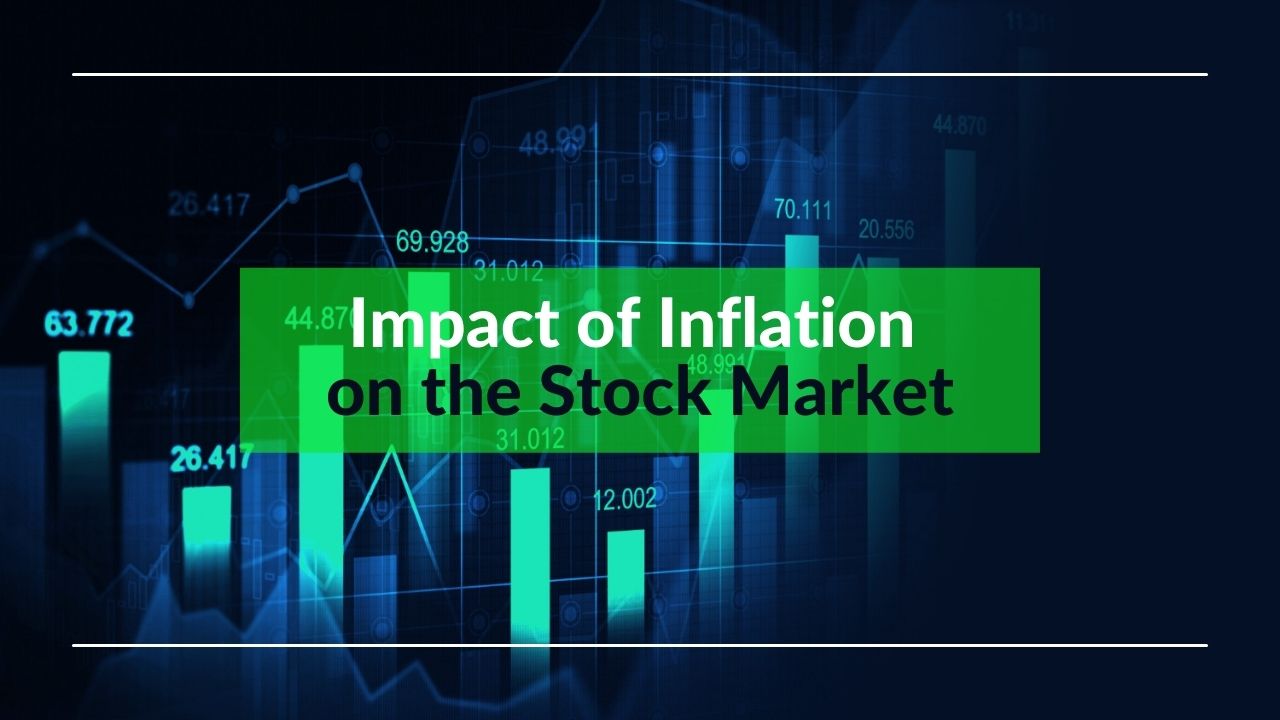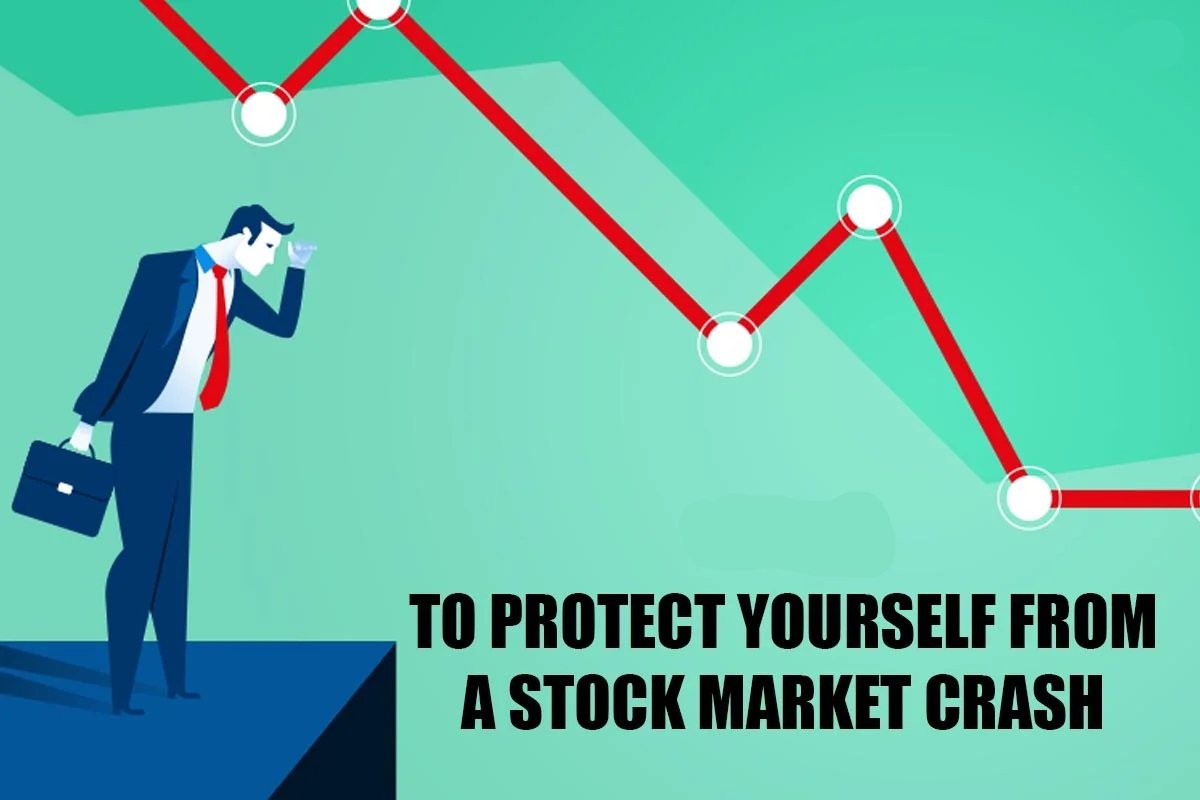What causes stock market crash? You hear about them shaking the financial world, but what lights the fuse? Beneath the surface, hidden triggers lie in wait, ready to throw the markets into chaos. It could be a bubble that’s got too big for its boots or a sudden shake-up countries and companies didn’t see coming. I’ll unearth these secrets, showing you the signs that a market nosedive might be just around the corner. From the wild rides of past bubbles to the cold, hard facts that warn of a fall, you’ll get the know-how to spot the dangers before they hit. Strap in, because we’re diving deep into what makes—and breaks—the markets.
Unraveling the Anatomy of Financial Bubbles and Crashes
The Lifecycle of Financial Bubbles
Financial bubbles form when prices of stuff, like houses or stocks, go way up. It starts quiet, with prices slowly rising. More folks notice and think, “Hey, let’s buy now before it gets too costly!” This demand pumps prices up more, and suddenly, everyone is talking about it – from news to your next-door neighbor. Prices rocket to the sky, way more than they’re worth.
But here’s the catch: it can’t last. Like blowing up a balloon too much, it’s going to pop. Sometimes, it’s a slow leak; other times, it’s a loud burst. When folks see prices stop going up or, worse, start to drop, they rush to sell fast. This rush causes prices to crash hard. This is a bubble bursting, and boy, does it hurt.
Historical Parallels: Dotcom and Housing Market Crashes
Look back at the dotcom crash. Early on, internet companies were hot. Everyone wanted a piece. Stock prices went crazy high. But many of these companies were all hype, no cash. When people caught on, it all fell apart. Prices tumbled, and lots of money was lost.
Then there’s the housing crash. Banks gave out risky loans. House prices flew up because buying them was easy. But then, people couldn’t pay back those loans. When that wave hit, home prices sank, pulling the stock market down with them.
Both times, warning signs were missed. For dotcoms, it was company profits – there weren’t any. With housing, loan defaults went up, and house building outpaced demand. People overlooked these signs, caught in the buzz of rising prices.
Got it? Now, let’s dig a bit deeper. When a bubble grows, folks get excited. They talk about it at dinner, on the bus, and at work. This buzz creates a fear of missing out, pushing more people to buy without thinking if it’s a good idea. It’s like when a new toy comes out at Christmas, and every kid has to have it. Prices for that toy can get really silly.
But there’s more to it. Other things happen in the world that can twist the stock market out of shape. Let’s say there’s fuss between two countries, and they stop trading. This makes people nervous, and they might sell stocks because they’re scared. And don’t forget about banks. If they make it cost more to borrow money, people spend less. When they spend less, companies make less money, and their stock prices can fall.
So, when you see stock prices soaring, and everyone around you is talking about buying stocks, that’s a time to step back and think. Watch out for signs, like when prices grow much faster than actual value, or companies start to stumble. Remember those dotcoms with no profits? That was a big red flag waving around, but many ignored it.
Always keep an eye on what’s happening in the world. Trade fights, oil prices jumping up and down, and new government rules can all mess with stock prices. These things can shake investor trust and lead to a market crash.
Always ask questions. Is the price fair? Are the company’s profits solid? What’s going on in the world right now? Be smart, and don’t get caught in a bubble that’s about to pop. Remember, if you look close, you can see the signs before a crash and keep your money safe.
Economic Indicators and the Harbingers of Market Decline
Understanding Economic Indicators Predicting a Crash
Have you ever wondered what loud warning bells sound like in the stock market? They don’t make a noise, but they show up as red flags we call economic indicators. Let’s dive in and understand some key signs that spell trouble.
First off, one big indicator is when stuff costs more across the board – we call this inflation. If inflation rises fast, it often leads to interest rate hikes. Think of interest rates as the price of borrowing money. When this price jumps, it costs people and businesses more to borrow. They then spend less, and this can lead to less profit for companies. If companies start earning less, investors may sell their stocks, fearing lower profits.
So, pay attention if the cost of living is getting steeper. It might tell us that a crash could be coming. Now, if everyone realizes this at once, it can spark investor panic. Imagine everyone trying to leave a room through one small door. Scary, right? So, prices can drop real fast as people rush to sell. Remember, fear can spread like wildfire.
Besides inflation, we watch specific sectors, like housing or tech. If prices in these areas shoot up without good reason, that’s a bubble. And what do bubbles do? That’s right, they burst! When that happens, it can pull the market down with it.
Now let’s talk about flashing lights from within companies. When firms put out their earnings report, we get a peek at their health. If the reports are bad, and it’s a big company, stocks might take a dive. Companies can also hint about their future. If they seem worried about making less cash, investors might start selling.
It’s not just stuff at home that causes hiccups in the stock market. Trouble abroad can shake things up too. Wars or big arguments between countries can scare the stock market. Changing trade rules can make it hard for businesses, influencing their stocks.
We also keep our eyes peeled for tricky moves, like market manipulation. If someone’s caught doing that, or if a big name in business goes bankrupt, trust can crumble. Investors might think, “If they can fall, maybe we’re all in trouble.” Scary thoughts can lead to real panic.
Lastly, we can’t forget about machines. Today, a lot of trading is done super quick by computers. Sometimes, too quick. This can cause a flash crash, where prices drop fast and rebound just as quickly. It might last a short time, but it sure does shake confidence.
So, what’s the big picture here? Be alert. Keep an eye on prices, earnings, and even headline news. They all drop hints. No one can say for sure when a crash will hit, but these signs might just give us a heads up.
Recognizing Warning Signs of Imminent Market Crashes
When you’re keeping watch for a market crash, know the ground can shake at any time. But before it does, the market often gives us a nudge. Watching out for warning signs helps us brace ourselves.
Think back to folks who cash in big before things turn sour. If big investors start pulling out, that’s your cue. It might mean they know something we don’t. If you see a lot of selling but not much buying, that’s like seeing dark clouds on a sunny day. Trouble might be brewing.
Another telltale sign is when stocks are too pricey. When prices go sky high but don’t match what the company actually makes, that’s overvaluation. If a company isn’t really that strong, its stock price may plummet when reality hits. When lots of them do at once, it can drag everything down with them.
Noticing these signs isn’t about guessing. It’s about being smart and careful. It’s about spotting the clues and taking care. A wise bird watches the signs so it isn’t caught off guard by the storm.
Remember, while we can’t dodge a crash for sure, knowing these signs might help us lessen the blow. Better to have an umbrella ready, right?
Behavioral Economics: Investor Sentiment and Herd Psychology
The Role of Investor Panic and Herd Behavior in Sell-offs
When stocks fall fast, it’s often more than numbers. Fear grips folks. They think, “Sell now or lose more!” This leads to big sell-offs. Many people follow. This follows the idea “If others sell, I should too.” This is herd behavior. It’s like when birds all fly away together when scared. When many investors act this way, it can crash the market.
The dangers of following the herd can be real big. It can lead to wrong choices. It can make small problems in the market turn into big crashes. Why do investors follow the herd? They watch others. They feel pressure. They worry about being left behind. They often don’t check if the selling makes sense. They just act. This can make stock prices go down fast.
Media stories can feed this fear. When the news talks a lot about the market falling, people might get even more scared. They might sell even if they lose money. They trust what they hear and see. This can make panics worse.
Media Influence and Investor Confidence During Market Turmoil
Now, let’s talk about the news. News can change how people feel about the market. Good news can make people want to buy stocks. Bad news can make them want to sell. This is about confidence. If people trust in the market, they will invest. If they don’t, they might sell.
The news can give us signs. It can tell us about big problems in companies or the world. But sometimes, the news can make fears bigger than they need to be. Quick news on TV, online, and on phones can cause big, fast changes in the market. People see headlines and react without thinking it through.
It’s important to not just follow the news. Think about what the news means. Look at the big picture. Ask yourself these: Does this news change the real value of my stocks? Are my reasons for investing still good? It’s not easy. But smart choices can protect your money when things get wild. Remember, news can guide us but not decide for us.
In conclusion, big fears can cause people to sell stocks in a rush. This can cause crashes. The news plays a role too. It can shake or boost our trust in the market. Making choices with care can help prevent big losses. But to know what’s really happening, we must look behind our fears and the headlines. And always, we must think for ourselves.
External Shocks and Their Impact on Market Stability
Consequences of Geopolitical Conflicts and Oil Shocks on Stocks
Why do stock prices drop when wars start? Fights between countries scare investors. They worry about oil prices and trade. They sell stocks, so prices fall. It’s not just fear, though. Real damages happen from these fights. Oil is key. Mainly, it keeps economies and travel going. When oil prices jump high, it costs more to move goods around. This can make everything more costly. So, companies earn less and their stocks may be worth less.
Conflicts can also mess up how things move from place to place. With key spots in danger, ships and planes may not travel well. Goods pile up. They can’t reach where they need to go. Prices for these goods then jump up too. People get less for more money, which we call inflation.
What about oil? It powers our world. If there’s a scare in oil supply, prices shoot up. Every up and down in oil costs can shake stock markets. This is because energy runs factories, cars, and heats homes. All companies use it. So, when oil gets costly, they all feel it. And that’s not all. Oil-rich areas in fights can cut supply. Then, everyone races to buy what’s left. This fear makes it all worse, and markets drop.
Deciphering the Effects of Interest Rate Hikes and Government Policies on Equities
Now, what about when the government acts or when banks change rates? These moves touch stocks a lot. When interest rates rise, it costs more to borrow. What does it do? Well, people buy less and save more. They want to earn from high interest. With less buying, sales can drop. Businesses then may make less money. This can lead stocks to fall because investors think profits will go down.
Also, it’s harder for companies to get money when it’s more expensive to borrow. They might delay new projects or growth plans. Investors see this as a bad sign. They may sell stocks, fearing that growth will slow down.
Governments change policies often. They might want to help the economy or fix problems. But sometimes these choices unsettle markets. Think about taxes, spending, or rules on trade. If a government raises taxes on companies, this can limit their profits. Hence, their stock prices might dip.
Sometimes, government choices make it tough for foreign firms to do business. This can lead to less trade, less income, and stocks can fall. All in all, actions by governments and banks matter a lot. They can set a stock market up for a big win or a big drop.
In the stock market, it’s a mix of what’s real and what people feel. Shocks from outside, like wars or policy changes, can shake the ground. They make waves that hit our wallets and the whole economy. Understanding this can help us spot trouble before it hits. It gives us an edge, to be ready when storms come.
We’ve explored the life of financial bubbles and their crash. We saw how they grow and burst and looked back at the dotcom and housing crashes. We learned how key signs can warn us of a downturn, with clear hints in economic data and market behavior.
We also peeked into how people think and act together in the stock world. Panic and following others can lead to huge sell-offs. Media tales play a big part in whether investors feel brave or scared.
Lastly, we touched on outside jolts to the markets. Big global fights and oil price leaps can shake things up. So can changes in interest costs and new rules from the government.
Every investor should keep a sharp eye on these clues. They can help you stay smart and safe when the market gets wild. Remember, knowing what shapes the market’s ups and downs helps you make better choices. Stay alert, stay informed, and you’ll navigate the waves of the financial seas like a pro.
Q&A :
What factors can lead to a stock market crash?
Stock market crashes are often the result of a combination of factors that can include economic disruptions, excessive speculation, overvaluation of stocks, geopolitical crises, and changes in investor confidence. Economic indicators like rising inflation, high-interest rates, or a slowdown in economic growth might signal underlying problems that prompt a sell-off. Additionally, sometimes market crashes can be triggered by a panic where investors start selling en masse, leading to a snowball effect.
How do psychological factors contribute to stock market crashes?
Investor psychology plays a significant role in stock market dynamics. Fear, greed, and herd behavior can lead to overreactions in buying or selling stocks. When investors follow each other in a rush to sell to avoid losses, or when overly optimistic buying creates a market bubble, the risk of a stock market crash increases. Once a sell-off begins, herd behavior can exacerbate the decline as more investors panic and sell their holdings, feeding into a downward spiral.
Can governmental policies trigger a stock market crash?
Yes, governmental policies can have a profound impact on the stock market. For example, sudden changes in fiscal policy, such as significant adjustments in tax rates or government spending, can alter market conditions and investor behavior. Monetary policies, especially changes in interest rates set by a country’s central bank, can affect borrowing costs and economic growth, which in turn can influence stock prices. If such policies are perceived as harmful to the economy or lead to uncertainty, they can be a catalyst for a market crash.
How does economic data affect the stock market?
Economic data such as employment reports, GDP growth figures, manufacturing indexes, and consumer spending can significantly impact investor sentiment and therefore the stock market. If the data reflects a weakening economy, it can lead to a loss of confidence among investors and a reduction in stock prices. Conversely, strong economic data can boost market confidence. Investors rely on these indicators to make predictions about future corporate earnings and economic health, which informs their investment decisions.
What role do stock market regulations play in preventing crashes?
Stock market regulations are designed to maintain fair and orderly trading and to protect investors. Effective regulations can prevent fraudulent activities and excessive speculation that can lead to market crashes. Measures such as circuit breakers can temporarily halt trading on a stock exchange if prices fall too rapidly, allowing time for information to disseminate and helping to prevent panic selling. Transparency requirements and trading restrictions also play essential roles in maintaining market stability and can thus be instrumental in preventing crashes.

